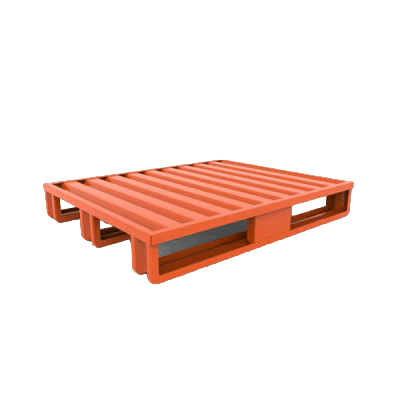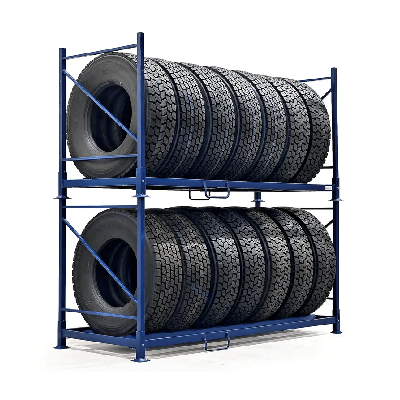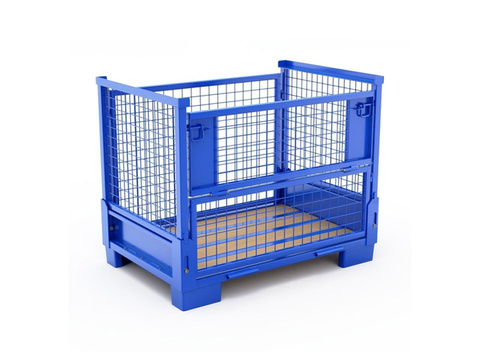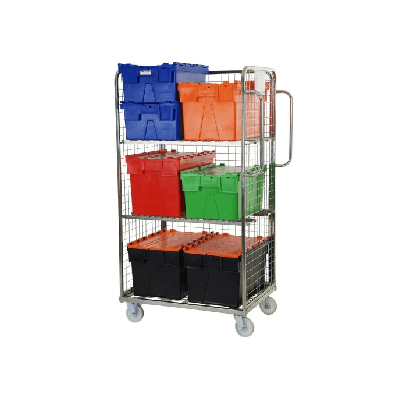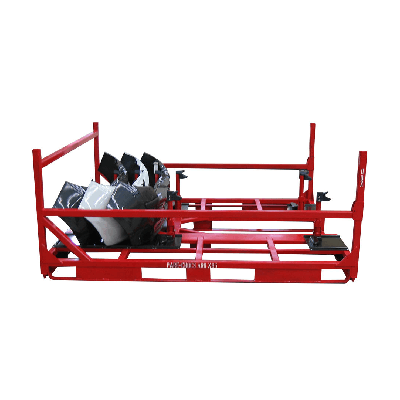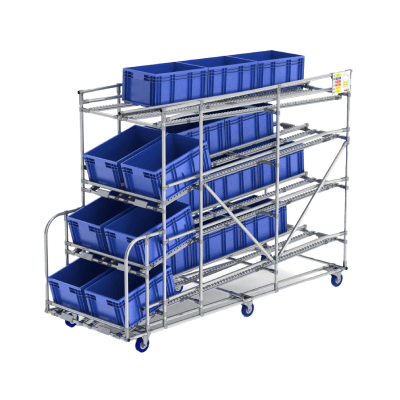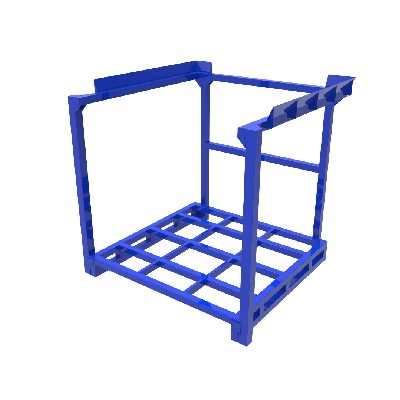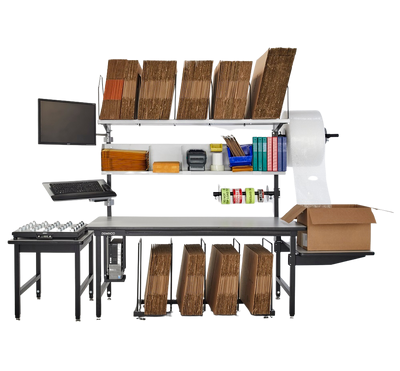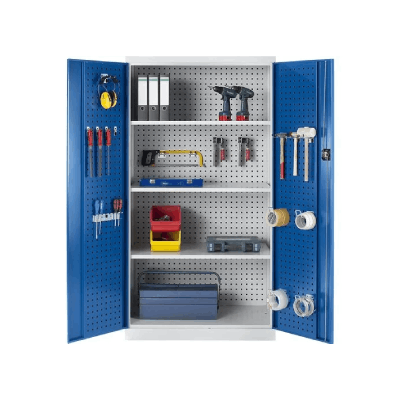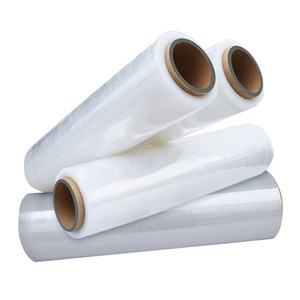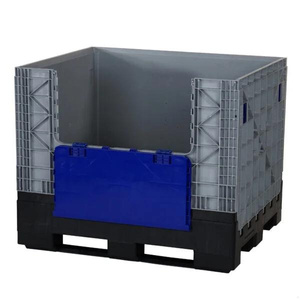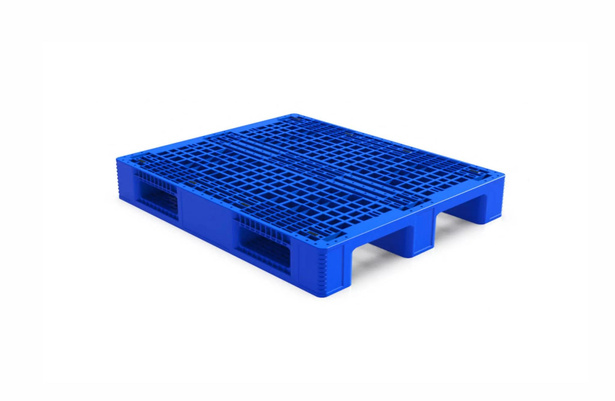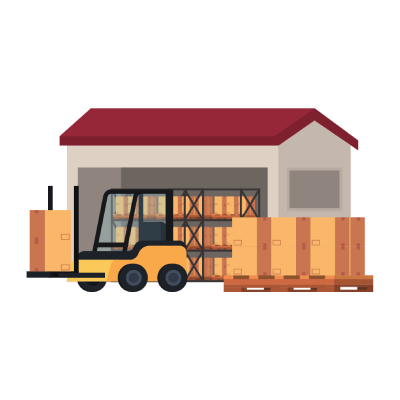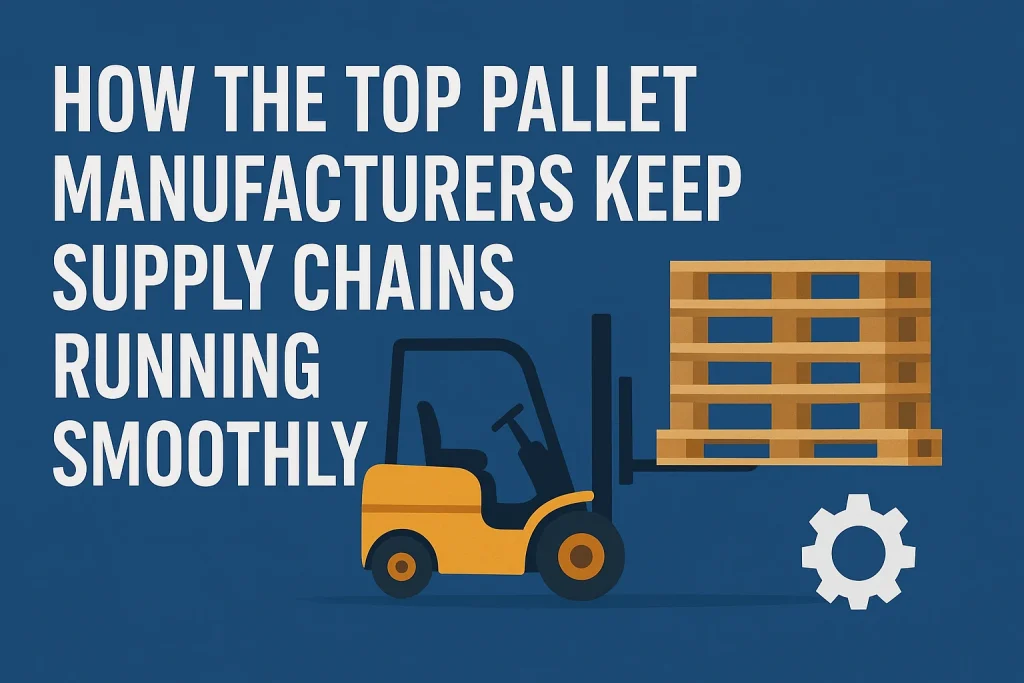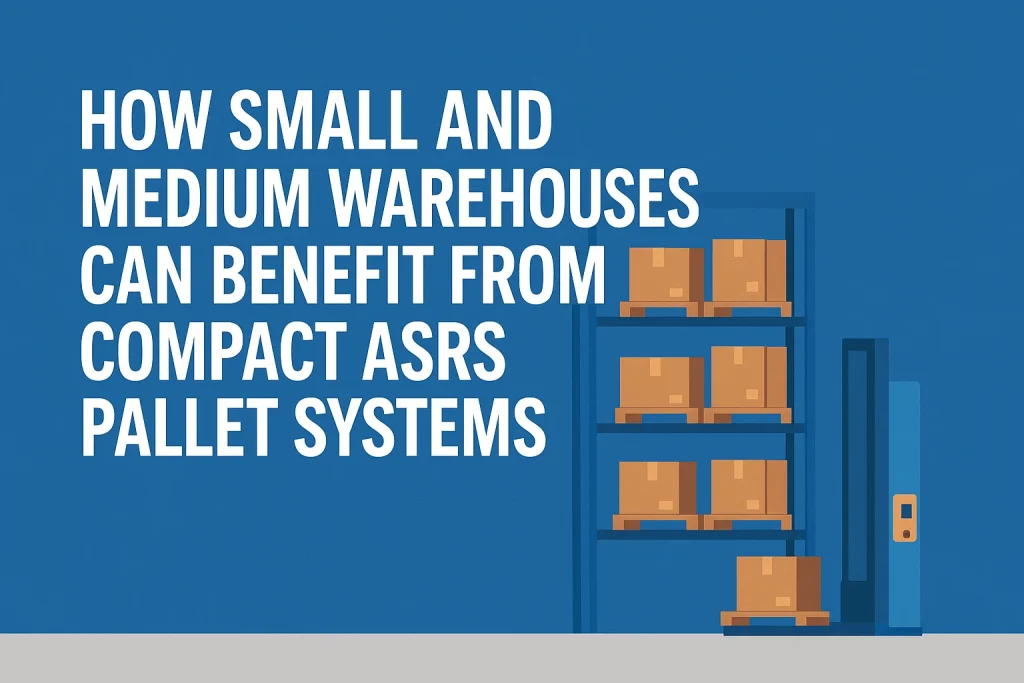In today’s hyper-connected global marketplace, businesses are expected to move products faster, safer, and more efficiently than ever before. Whether it’s a small regional distributor or a multinational corporation, every organization relies on pallets to keep supply chains moving. While they may seem like simple platforms, pallets play an essential role in supporting the logistical backbone of nearly every industry.
Behind the seamless transportation of goods is a network of highly skilled pallet manufacturers who innovate, engineer, and optimize these critical tools. Understanding how the top players operate provides insight into the hidden efficiencies that enable modern supply chains to function day after day without disruption.
This article explores how the Top Pallet Manufacturer leaders in the industry maintain excellence, overcome challenges, and support the constant motion of global commerce.
Table of Contents
Toggle1. The Essential Role of Pallets in Modern Supply Chains
Pallets do more than just hold products—they serve as the foundation for storage, transport, and warehouse organization. In many ways, pallets are the unsung heroes of logistics. Without them, loading docks would slow to a crawl, warehouses would require far more labor to move goods, and transportation costs would skyrocket.
Pallets contribute to supply chain efficiency by:
- Maximizing storage space through optimized stacking
- Streamlining material handling with forklifts and automated systems
- Protecting goods from damage during transport
- Enhancing traceability when integrated with barcodes or RFID
- Standardizing shipment processes across industries and borders
Because of their central role, businesses depend on pallet manufacturers that commit to excellence in design, production, and distribution.
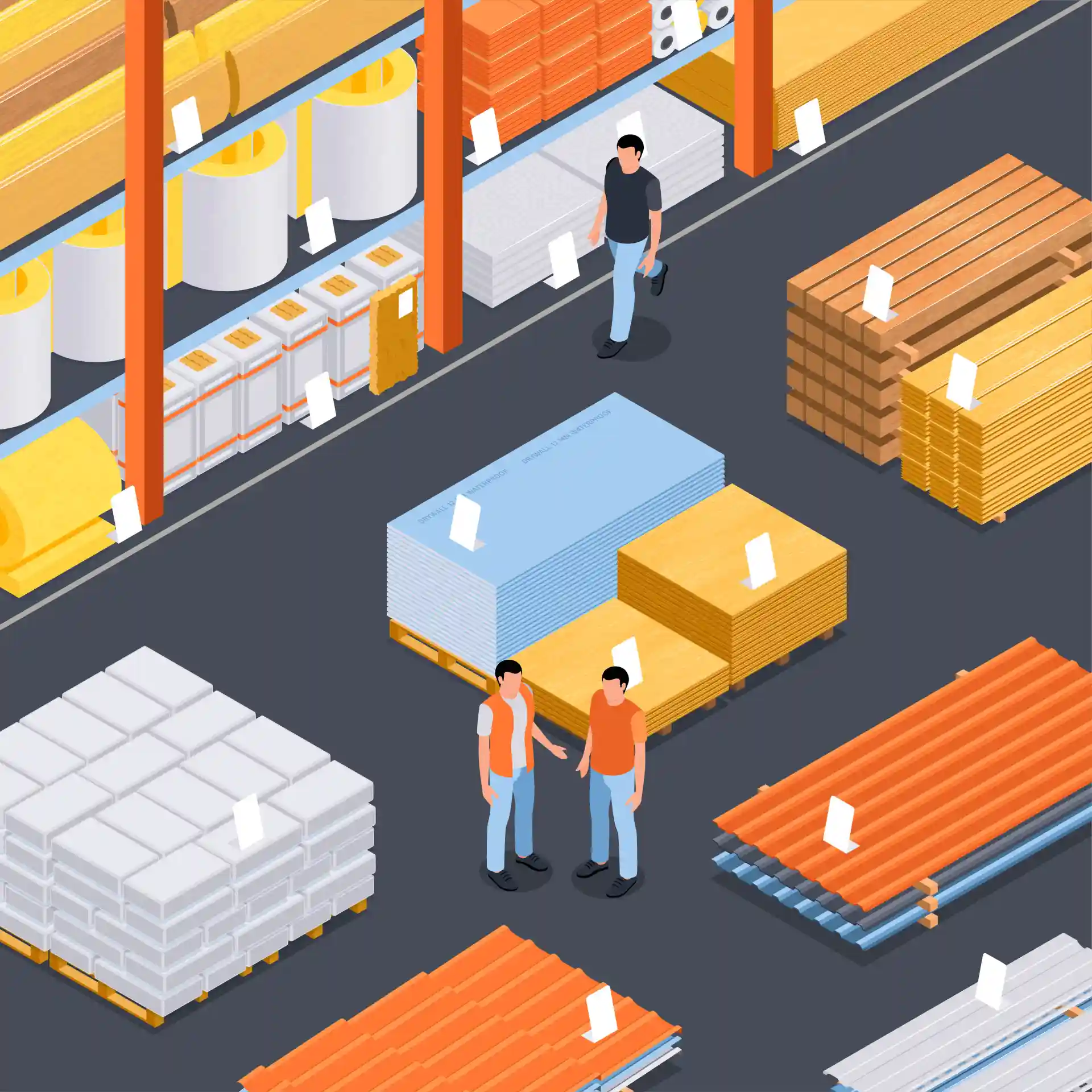
2. High-Quality Materials: The Foundation of Reliable Pallets
One of the biggest differentiators among pallet suppliers is their focus on materials. The top pallet manufacturers invest heavily in sourcing durable, sustainable wood, composite, or plastic materials to ensure every pallet can withstand the rigors of modern shipping.
Wood Pallets
Wood remains the most common material due to its cost-effectiveness and strength. Leading manufacturers select lumber responsibly, following strict moisture content standards to prevent warping and maintain stability.
Plastic Pallets
Plastic pallets are valued for their longevity, hygiene, and uniformity—critical for industries like pharmaceuticals and food distribution. Recyclable materials and advanced molding techniques help manufacturers deliver consistent quality.
Hybrid & Composite Pallets
Some of the industry’s most forward-thinking producers invest in composite blends that combine the strength of wood with the precision of engineered materials.
Selecting high-grade inputs ensures pallets are reliable, safe, and long-lasting, reducing replacement frequency and minimizing supply chain disruptions.
3. Precision Engineering & Advanced Manufacturing Technology
Innovation is at the heart of modern pallet production. While earlier pallets were often hand-assembled, today’s leading manufacturers rely on automation and precision-driven processes to maintain consistent quality.
Automated Assembly Lines
Robotics and automated nailing systems improve accuracy, reduce human error, and increase output speed—ensuring supply keeps pace with demand.
Computer-Aided Design (CAD)
Precision modeling software allows engineers to test weight load, durability, and stress points before pallets are even produced.
Quality Control Scanning
State-of-the-art scanners and sensors verify dimensions, board spacing, and fastener alignment to within millimeters, delivering uniformity essential for automated warehouses.
By using technology to refine every step, the Top Pallet Manufacturer leaders ensure every pallet contributes to a smoother, more efficient supply chain.
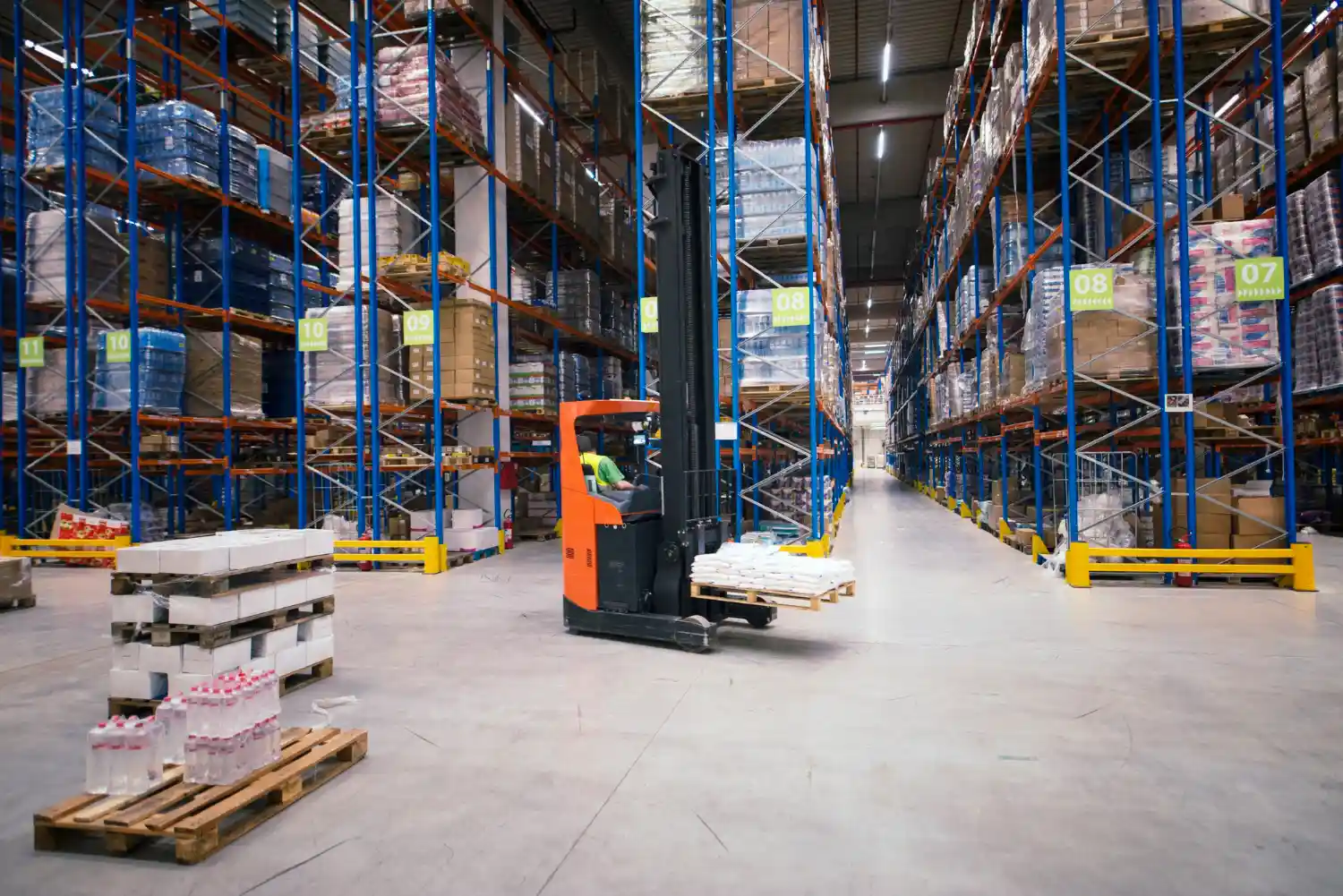
4. Sustainability: A Core Pillar of Today’s Pallet Industry
Eco-conscious practices are not an optional extra—they are now a core component of how top manufacturers operate. Businesses and consumers alike expect environmentally responsible practices, and pallet manufacturers are taking that responsibility seriously.
Responsible Wood Sourcing
Many manufacturers follow strict forestry certifications, ensuring lumber is harvested responsibly and sustainably.
Recycling & Reconditioning Programs
Millions of pallets are refurbished and reused each year, reducing waste and lowering costs for businesses.
Material Innovations
Plastic pallets are frequently produced from recycled resin, and wood waste is reclaimed as mulch, fuel, or animal bedding.
Carbon Footprint Reductions
Improvements in transportation routing, energy-efficient machinery, and waste reduction help minimize environmental impact.
Sustainability not only protects the planet—it also strengthens long-term operational stability for manufacturers and supply chains.
5. Customization for Industry-Specific Needs
Not all pallets are created equal. Different industries require specialized solutions that align with their unique storage and handling processes.
Food & Beverage
Hygiene-friendly pallets made of treated wood or plastic are designed to resist moisture, bacteria, and contaminants.
Retail & E-Commerce
Lightweight, stackable pallets help optimize high-volume picking and fast-moving distribution centers.
Automotive
Heavy-duty pallets support oversized or irregular components, often with custom configurations and reinforcements.
Pharmaceutical
Sterile, traceable pallets compatible with automated logistics systems provide maximum precision and safety.
Customization enables pallet manufacturers to deliver the perfect solution for every warehouse, truckload, or production line.
6. A Strong Distribution Network for On-Time Delivery
Even the best pallets can’t help a business if they don’t arrive on time. Top manufacturers invest in strategic distribution networks, ensuring clients receive pallets whenever and wherever they’re needed.
Multiple Manufacturing Sites
Facilities located near major transportation hubs reduce transit time and shipping costs.
Regional Stocking Yards
Inventory is stored closer to customers, enabling same-day or next-day delivery.
Fleet & Logistics Management
Integrated transportation planning ensures timely pallet replenishment—preventing supply chain bottlenecks during peak seasons.
These systems allow manufacturers to support businesses during high demand, unexpected spikes, and urgent restock needs.
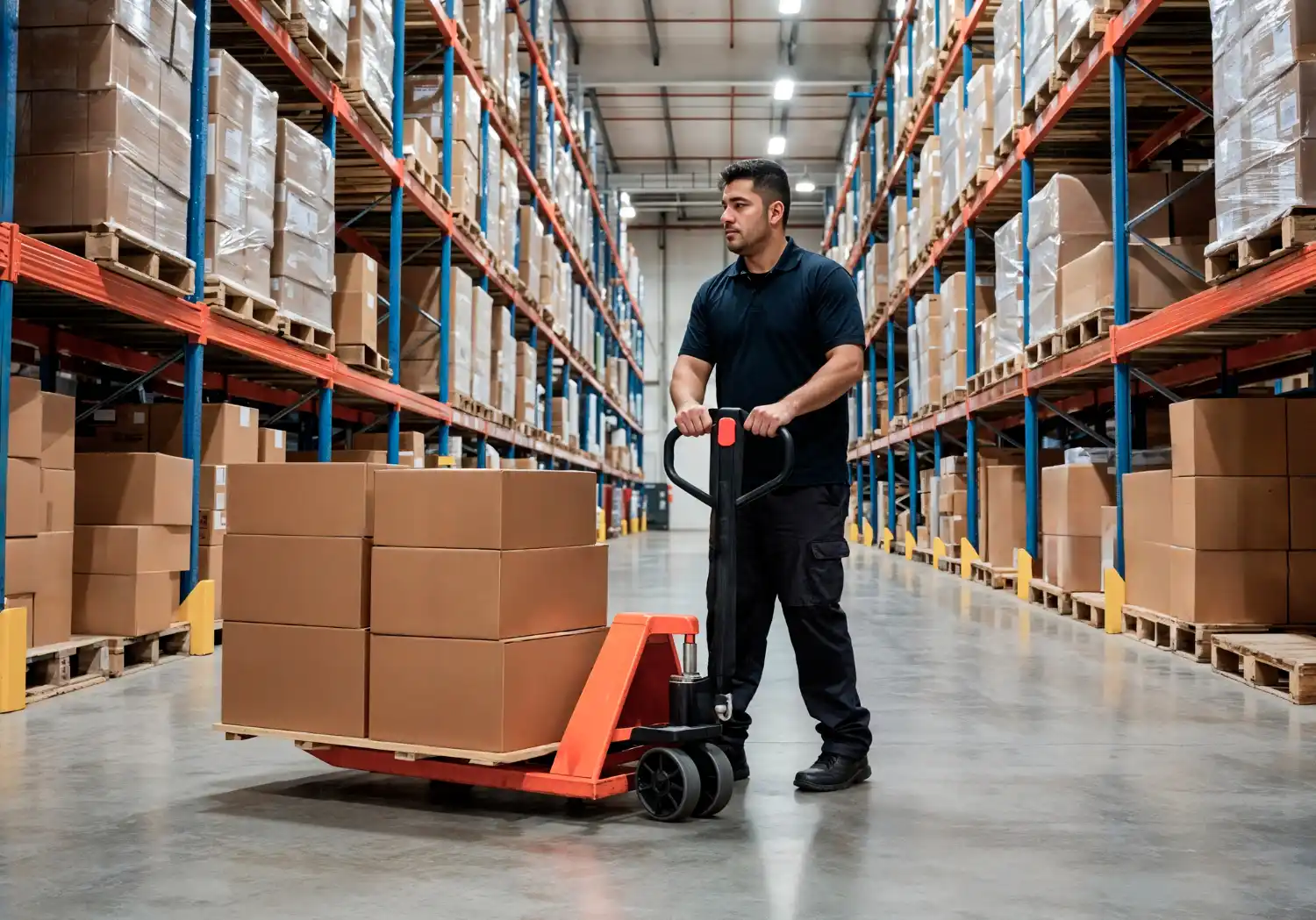
7. Rigorous Safety & Compliance Standards
Pallets may be simple, but safety is not. Whether wooden or plastic, pallets must meet industry and government regulations that ensure they are safe to transport across borders and use in different environments.
ISPM-15 Certification
For international shipping, wood pallets must undergo heat treatment to prevent the spread of pests and disease—something reputable manufacturers handle with precision.
Load Testing
Manufacturers perform compression, drop, and edge tests to confirm each pallet meets the required weight capacities.
Material Safety
Plastic pallets must comply with chemical and hygiene standards, particularly in the food and medical sectors.
Prioritizing compliance prevents costly delays, fines, or damaged goods.
8. Repair, Return, and Recycling Programs
Top manufacturers don’t just produce pallets—they maintain them. Repair and recycling services play a major role in extending pallet life while keeping costs low for customers.
Repair Programs
Broken boards and stringers can often be replaced, restoring pallets to usable condition.
Return Networks
Businesses can return used pallets to be inspected, repaired, or recycled.
Closed-Loop Systems
Some manufacturers operate closed-loop pallet pools where customers rent pallets, and the manufacturer handles all logistics, maintenance, and replenishment.
These programs reduce waste, promote sustainability, and ensure businesses maintain a steady pallet supply.
9. Collaboration & Customer Support
Beyond manufacturing, top pallet producers provide ongoing support that strengthens customer relationships and supply chain efficiency.
Warehouse Consulting
Experts recommend the best pallet designs for equipment compatibility, storage optimization, and safety.
Load Management Guidance
Consultants help businesses choose the right pallet for specific products, weight loads, and transportation methods.
Dedicated Customer Service
Fast communication channels allow companies to adjust orders, request emergency shipments, or schedule repairs effortlessly.
This commitment to service helps businesses maintain the reliability and agility needed in today’s demanding marketplace.
10. The Future of Pallet Manufacturing
As supply chains evolve, so do pallets. The future of pallet manufacturing is shaped by emerging technologies and industry innovations.
IoT-Enabled Smart Pallets
Smart sensors integrated into pallets help track location, temperature, and movement in real time.
Automation-Optimized Designs
Pallets are being engineered with precise dimensions to function seamlessly with robotics, AGVs, and automated storage systems.
Circular Economy Practices
The push toward 100% recyclability and closed-loop pallet programs will continue gaining momentum.
Advanced Materials
New composites and sustainable plastics will improve durability while lowering environmental impact.
The manufacturers who embrace these advancements will lead the next generation of supply chain efficiency.
Conclusion
Pallets may seem like simple wooden structures, but they are integral to nearly every modern supply chain. From advanced engineering and sustainable sourcing to robust distribution networks and innovative repair programs, the top manufacturers in the industry work tirelessly to ensure warehouses stay organized, trucks stay full, and goods keep moving.
For businesses seeking reliability and long-term efficiency, partnering with a pallet supplier committed to quality and innovation makes all the difference. Companies like Kole Pallet continue to exemplify how dedication, craftsmanship, and forward-thinking solutions keep supply chains running smoothly day after day.
Frequently Asked Questions:-
1. Why are pallets so important in modern supply chains?
- Pallets provide a stable platform for storing, moving, and transporting goods. They improve efficiency in warehouses, reduce product damage, enable faster loading and unloading, and support automation systems used in logistics today.
2. What qualities define a Top Pallet Manufacturer?
A leading manufacturer focuses on high-quality materials, precision engineering, sustainability, reliable distribution networks, and strong customer support. They consistently deliver durable, safe, and cost-effective pallet solutions.
3. What types of pallets are most commonly used by businesses?
The most common pallet types include wood pallets, plastic pallets, and composite or hybrid pallets. Each type offers unique benefits depending on industry needs such as durability, hygiene, or cost-efficiency.
4. How do pallet manufacturers support sustainability in the supply chain?
Manufacturers promote sustainability by sourcing wood responsibly, recycling and refurbishing pallets, reducing waste, using eco-friendly materials, and optimizing production processes to lower energy usage and carbon emissions.
5. Can pallet manufacturers create custom pallets for specific industries?
Yes. Many top manufacturers design custom pallets tailored to industries like food, pharmaceuticals, retail, automotive, and manufacturing. These custom solutions ensure compatibility with handling equipment, improve safety, and enhance overall operational efficiency.

